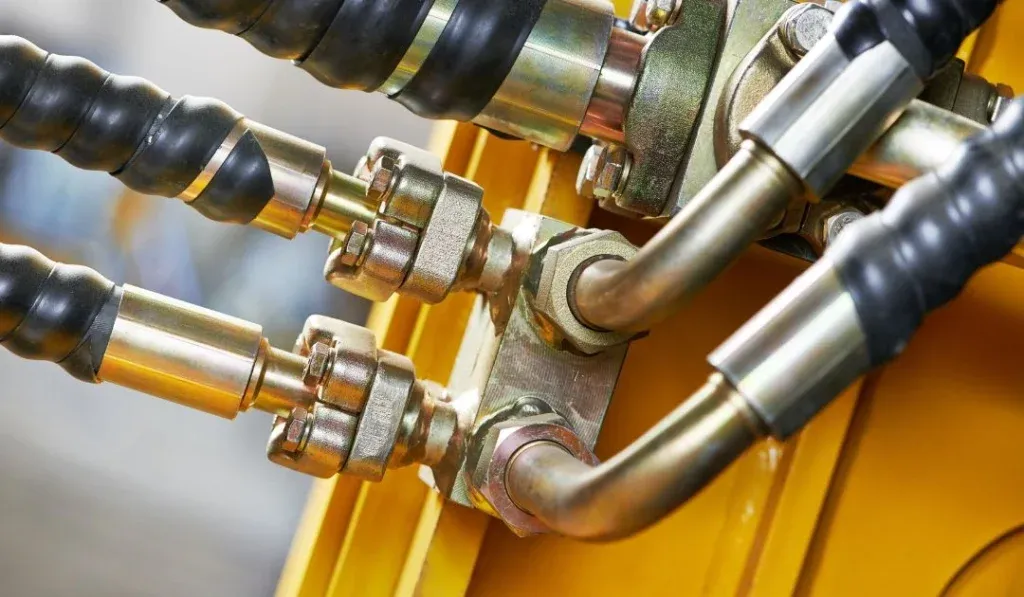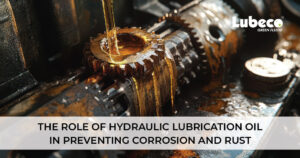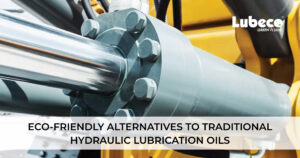Introduction:
Hydraulic systems play a central role in many industrial applications, from manufacturing and construction to the aerospace and automotive industries. These systems rely on hydraulic fluids, also known as hydraulic lubricants or hydraulic oils, to transmit forces, lubricate components, and maintain system efficiency. In this blog, we will dive into the main characteristics and functions of hydraulic lubricants in different industrial contexts.
Properties of Hydraulic Oil:
- Viscosity:Viscosity refers to a fluid’s ability to resist flow. In hydraulic systems, lubricant viscosity is important because it affects the efficiency of power transmission and lubrication of components. Hydraulic fluids must maintain optimum viscosity at different operating temperatures to ensure smooth operation and avoid excessive wear.
- Viscosity Index (VI):The viscosity index measures how much a lubricant’s viscosity changes with a change in temperature. High viscosity index hydraulic oils exhibit minimal viscosity change over a wide temperature range, which is important for maintaining consistent performance under varying operating conditions.
- Anti-Wear Properties:Hydraulic fluid must have excellent anti-wear properties to reduce friction and wear between moving parts. This property is important in preventing premature failure of hydraulic pumps, valves and other critical components.
- Oxidation and Thermal Stability:Hydraulic systems can generate heat due to mechanical friction and system inefficiencies. Hydraulic oils with good thermal and oxidation stability will resist breakdown and the formation of deposits or deposits at high temperatures, helping to extend the life of the oil and reduce maintenance requirements.
- Anti-Corrosion and Rust:Hydraulic lubricants should protect metal parts from corrosion and rust, especially when exposed to humid or harsh environments. Effective corrosion inhibition prolongs the life of hydraulic system components.
- Foaming Power:Foaming can reduce the lubrication and aeration efficiency of the hydraulic system. Hydraulic fluids with a low foaming tendency are preferred to maintain good lubrication and system performance.
- Demulsibility:In applications where the hydraulic system is exposed to water, such as marine environments or construction sites, the hydraulic fluid must have good emulsification capabilities. This property allows water to quickly separate from the liquid, preventing emulsification and potential spoilage.
Functions of Hydraulic Oil:
- Transmission Capacity:Hydraulic systems use pressurized fluids to transmit force. Hydraulic oils that, under high pressure, allow force to be transferred from one point to another, driving pistons and other mechanical components.
- Lubrication:Hydraulic oil provides a protective lubricating layer between moving parts, reducing friction and wear. Proper lubrication ensures smooth operation and prolongs the life of components such as pumps, valves and cylinders.
- Heat Dissipation: The hydraulic system generates heat by converting mechanical energy. Hydraulic fluid helps dissipate this heat, preventing overheating and maintaining system efficiency.
- Sealing and Sealing Compatibility:Hydraulic fluid acts as a sealing fluid in hydraulic systems. They help maintain the integrity of seals and washers, prevent leaks and maintain system efficiency. It is important to choose a hydraulic fluid that is compatible with the material and seals of the system.
- Removes Contaminant:Hydraulic lubricants can help remove contaminants such as dirt, debris, and particles that can enter the system. Proper filtration and maintenance are essential to prevent these contaminants from causing damage.
- Pressure Transmission:Hydraulic fluid allows pressure to be transferred from one part of the system to another. This transfer of pressure is essential for functions such as lifting heavy objects or controlling the movement of machines.
Conclusion:
Hydraulic lubricants are the foundation of efficient and reliable industrial operation. With specific properties and functions, these fluids ensure the proper functioning of hydraulic systems, from power transmission to component protection. Selecting the right hydraulic oil, taking into account factors such as viscosity, anti-wear properties and thermal stability, is critical to maintaining optimal system performance, minimizing downtime. and extend the life of hydraulic equipment in various industrial applications.










